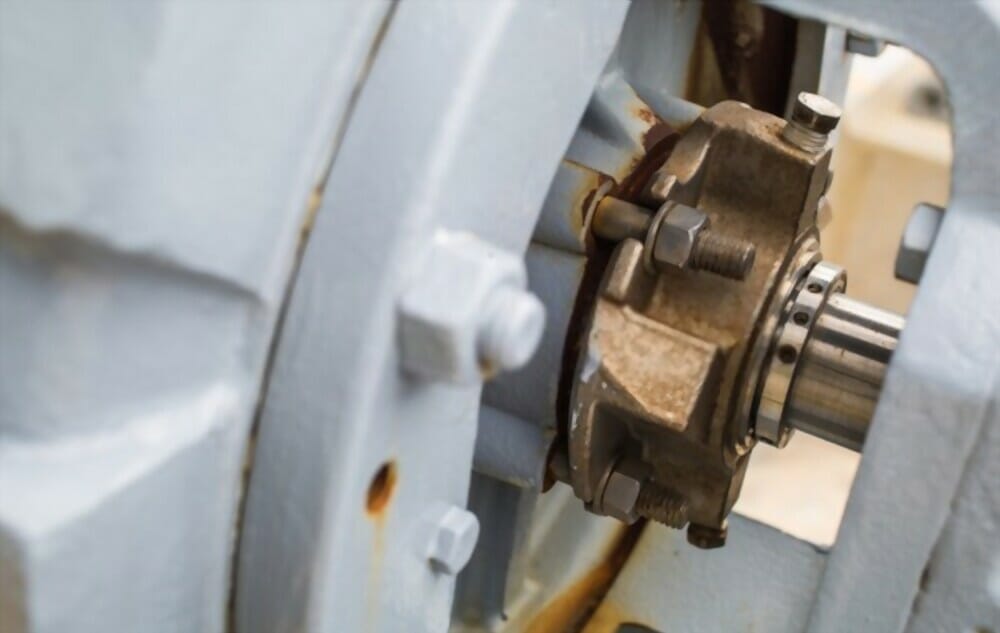What’s the difference between silicon carbide and tungsten carbide mechanical seals? Both materials offer unique properties for sealing applications.
In this blog post, we’ll explore the key distinctions between these two carbide materials, helping you make an informed decision when selecting the right mechanical seal for your specific needs.

Composition
Silicon carbide (SiC) is a compound of silicon and carbon, while tungsten carbide (WC) is a compound of tungsten and carbon.
SiC has a stoichiometric ratio of 1:1, whereas WC has a variable composition, typically with a higher proportion of tungsten.
Hardness and Wear Resistance
Silicon carbide (SiC) and tungsten carbide (WC) are both known for their exceptional hardness and wear resistance. SiC has a Mohs hardness of 9.5, while WC falls between 8.5 and 9.0. This makes SiC slightly harder than WC, providing better resistance against abrasive wear.
However, WC exhibits higher fracture toughness compared to SiC. This means that WC is more resistant to cracking and chipping under impact or shock loads, making it a better choice for applications with frequent start-stop cycles or sudden pressure changes.
Chemical resistance
SiC is known for its excellent chemical resistance, particularly against strong acids, alkalis, and oxidizing agents. It is also resistant to corrosion in high-temperature environments.
WC has limited chemical resistance. It is susceptible to attack by strong acids and oxidizing agents, which can lead to corrosion and degradation of the seal face. However, WC is compatible with most alkaline solutions and can withstand exposure to abrasive slurries and particulates.
Thermal Conductivity and Expansion
SiC has a higher thermal conductivity than WC, allowing it to dissipate heat more effectively from the seal faces. This reduces the risk of thermal distortion and maintains seal face flatness, ensuring proper sealing performance.
Both SiC and WC have low coefficients of thermal expansion, which minimizes dimensional changes due to temperature fluctuations. However, SiC has a slightly lower thermal expansion coefficient compared to WC, making it more dimensionally stable in high-temperature environments.
Cost
WC mechanical seals are typically less expensive than SiC seals. The raw materials and manufacturing processes for WC are more readily available and cost-effective compared to those for SiC.
Applications
SiC mechanical seals are preferred in applications involving highly abrasive media, high temperatures, and corrosive environments. They are commonly used in pumps handling slurries, abrasive chemicals, and high-temperature fluids.
WC mechanical seals are suitable for applications with moderate abrasiveness and chemical resistance requirements. They are often used in pumps handling water, oil, and other less aggressive media.
FAQs
Can silicon carbide and tungsten carbide mechanical seals be used in dry running conditions?
Both materials can handle dry running conditions, but tungsten carbide is more suitable due to its higher fracture toughness and thermal conductivity.
Are there any limitations to using silicon carbide or tungsten carbide mechanical seals?
Silicon carbide’s brittleness can limit its use in applications with high impact or thermal shock, while tungsten carbide’s lower chemical resistance may restrict its use in certain aggressive media.
In conclusion
Silicon carbide and tungsten carbide mechanical seals have distinct properties that make them suitable for different applications. Consider factors such as temperature, pressure, and chemical compatibility when selecting the appropriate seal material.
Contact our experts to discuss your specific requirements and find the optimal sealing solution.

